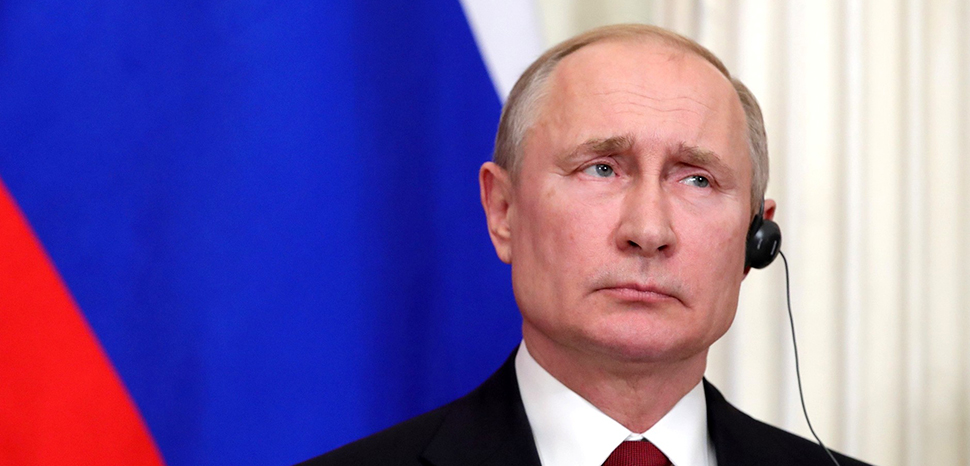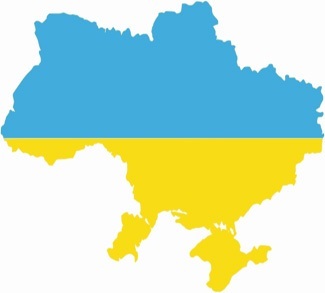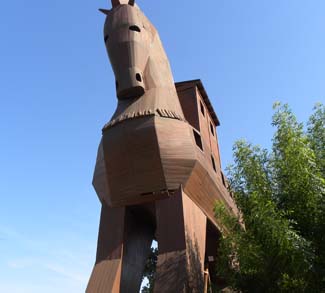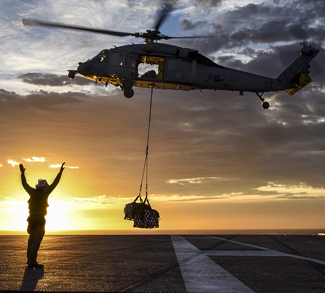By many counts, Putin’s invasion of Ukraine has been an unparalleled mistake. He has united Europe and the West against this regime. He has, to quote NATO Secretary-General Jens Stoltenberg gotten “more NATO, not less.” He has turned a country that was relatively polarized and divided on the issue of Russia relations as recently as the 2010 presidential election into a country that is overwhelmingly in favor of prosecuting the war to its end. And it has lost tens of if not hundreds of thousands of its soldiers on the battlefield over the past year.
What does Russia want from Ukraine that would justify such a steep price?
There are signs that Moscow itself might be having a hard time coming up with an answer. Over the past year, the Kremlin has vacillated between initially trying to get rid of the “Nazi” regime in Kyiv, to “protecting” the citizens of the Donbas from Ukrainian forces and expanding their hold on Zaporizhzhia and Kherson as “new territories.”
In his Stalingrad anniversary memorial speech, Putin laid out Russia’s desire for “victory,” comparing it to the defeat of the Nazis in WW2. One interpretation could be that Russia seeks the absolute surrender of Ukraine and the creation of a new client state. Russia’s superficial pursuit of negotiations, which has been viewed as insincere by both NATO and Ukraine, would appear to contradict this to a domestic audience. Unconditional surrender, after all, requires no negotiation.
The creation of a client state, however, could require up to 800,000 Russian soldiers to occupy the country and support the client government. Russia would have to devote a significant amount of economic, political, and military resources to maintain that situation. And if the lessons from Afghanistan are to be learned, Russia would very likely find itself in a quagmire if they attempted to absorb the whole of Ukraine.
Thus, a more likely desire falls under Russia’s quest for “self-defense.” Most Russians who support the war claim it is an act of self-defense, namely, that NATO sought to destroy Russia and would have attacked it in any case regardless of whether Russia attacked Ukraine. This interpretation seems to ignore the fact that it was Russia, not NATO, that spent months building up troops on the Ukrainian border and ultimately invaded the country.
Regardless of the facts, this is how pro-war Russians have come to understand their country’s involvement in Ukraine. Geopolitical interests and Russia’s long-standing fears regarding NATO have driven Russian policy for years, if not decades, since at least the Munich Security conference of 2007. It is highly unlikely that these issues have gone away, regardless of the various ways the Kremlin tries to frame the war.
In his address to the Russian nation on the eve of February 24, 2022, Vladimir Putin laid out three primary justifications for his invasion of his sovereign neighbor. He reiterated claims that Ukraine was carrying out a “genocide” of ethnic Russians or Russian-speaking citizens of Ukraine under a “neo-Nazi” government. He also claimed that Ukraine had no right to exist as a state independent of Russia. And finally, he claimed that NATO was a hostile alliance seeking to undermine and destroy Russia’s way of life.
Putin’s claims of genocide by a “neo-Nazi” government are blatant fabrications. And historical irridentism doesn’t always or necessarily lead to war, although it can serve as a catalyst, as happened between Somalia and Ethiopia in the Ogaden in 1977.
In response to NATO’s self-characterization as a defensive alliance, Putin has cited NATO’s intervention in Kosovo in 1999, which occurred without the authorization of the UN Security Council, as a reason for launching his war in Ukraine. Naturally, this has upset Serbia, which voted against Russia in the most recent UN General Assembly vote condemning the invasion.
There are glaring problems in Putin’s line of thought. Prior to the invasion, Ukraine was nowhere near ready to join NATO. Even if it did end up joining, there is no reason to believe that NATO would launch a war against Russia from Ukrainian or any other ex-Soviet aligned country. Furthermore, if the shoe were on the other foot, would the fact that Russia has invaded Georgia, seized Crimea, smuggled troops into the Donbas, and now with its full-scale war in Ukraine justify the invasion of an aligned country such as Belarus, based on these acts? And would that give the right for the West to dictate to a country like Uzbekistan that it must “de-militarize” and adopt, by threat or use of force, an anti-Russian foreign policy?
Two “wrongs,” if one views NATO’s involvement in Kosovo a “wrong,” do not make a right. While Putin’s justifications of the war for this reason are bogus, his fear that the West and NATO are out to destroy Russia are likely genuine.
It has been in the backdrop of intense fighting that Ukrainian President Volodymyr Zelenskyy announced in late December of 2022 his ten-point plan for peace. Territorial integrity and security guarantees are non-negotiable for Ukraine. That almost certainly means that Ukraine will pursue NATO membership if the war ends with their independence and sovereignty intact.
NATO membership, while having been a pre-war a red line, could be an easier pill to swallow if certain conditions were met. Agreeing to a demilitarized zone, including parts of, or the whole of, the Donbas along the internationally recognized border could be organized. Armed or unarmed peacekeepers could also be utilized, as could limits on NATO’s military presence in the country, which was the case for much of NATO’s Eastern flank before 2014. A referendum on these conditions could be agreed to, but whether this would mollify Moscow is unknown, and perhaps unlikely.
The fundamental challenge for Ukraine and its allies is how to produce a settlement that not only restores Ukraine’s territorial integrity and security, but also ensures that acts of aggression against self-governing states do not happen in the future.
From the Ukrainian side, such concessions for the country being in NATO under this proposal may simply be too much for them to surrender to. For the Russians, any sort of arrangement with NATO and Ukraine may also be too much. A compromise on NATO membership would likely satisfy neither side for this reason. But that doesn’t mean agreement can’t in theory be reached elsewhere.
In the Donbas, there were already prior agreements that Ukraine signed on to in 2015 that would have given the regions autonomy under the Minsk agreements. The now-defunct Minsk II accords could still serve as a baseline for reintegrating the Donbas with the rest of Ukraine, even as the accords themselves faced criticism and failed to definitively settle the statuses of Crimea and the Donbas within Ukraine while they were in force.
Regardless of whether Ukraine takes Crimea by force or negotiation, granting the peninsula a high level of autonomy under Ukrainian administration would probably be unavoidable. Prior to the 2014 annexation, about 60% of the peninsula was ethnically Russian and the region has since spent nine years living as a part of Russia. The level of autonomy for this region would have to be very high, probably comparable to the status of Hong Kong in China, for Russia to accept any transfer of sovereignty. In a further concession to Russia, an interim UN-administered Crimea may be agreed to, as well as the option for a second, this time free and fair, referendum several years down the line not unlike the Baker Plan concerning Western Sahara. Rights of return for Ukrainians and Tatars would need to be accepted, but even so the idea of a UN administered region may seem unpalatable to Kyiv. But the alternative may very well be a costly occupation and counter-insurgency campaign on the peninsula.
The Zaporizhzhia and Kherson oblasts exist primarily as a land bridge between Crimea and the Donbas, as well as fitting into Putin’s “Novo-Rossiya” narrative. Absent these factors, Russia may be more willing to relinquish the two, though it would undoubtably be an embarrassing outcome.
All these territorial concessions depend on the Russian willingness to return the territory It has seized. The reason it seized those territories in blatant contravention of international law was out of an essentially unfounded fear that the West, had they not done so, would be in a far greater position to harm Russia in the future. They have pursued a maximalist approach with the West for years now, as indicated in one instance by their December 2021 letter to NATO in Brussels.
Much of this, however, supposes that Russia would be willing to negotiate in good faith. For the past nine years, it has shown no willingness to do so. Yet the mass rates of casualties, war weariness among many Russians, along Russia’s confused war aims could provide a necessary catalyst for peace at the negotiating table.
For the reasons laid out in this article, Russia’s own interests would be best achieved through sincere negotiation.
The views expressed in this article belong to the authors alone and do not necessarily reflect those of Geopoliticalmonitor.com.




